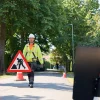New Report Examines the UK Impact of Switching Off 2G Mobile
At some point in the future Vodafone, O2, Three UK and EE (BT) may take the decision to start switching off their old 2G (GPRS, EDGE etc.) mobile networks; mostly used for voice. A new report from the UK Spectrum Policy Forum and Real Wireless helps to highlight some of the challenges this could create.
The idea of switching off 2G networks is hardly new or surprising, particularly since today most of us make calls and surf the internet (mobile broadband) via 3G, 4G and 5G networks rather than the old 2nd generation platform. Back in 2015 Ovum predicted (here) that the first operators could start to do this from 2020, most likely as part of a cost saving exercise and a way of re-farming the spectrum for use with 4G or 5G etc.
However last year Vodafone UK signalled that their old 3G network would probably be retired – in a couple of years’ time – before 2G because the latter remains useful as a low-power fall back and is still necessary for some rural areas, as well as particular applications (here). Smart meters and other Internet of Things (IoT) / M2M services may still be dependent upon 2G, as are certain roaming facilities with overseas operators and in-vehicle calling systems.
Advertisement
The new report covers these aspects and notes that 4G networks carried 85% of the UK’s data traffic as of the end of 2018, up from 74% a year earlier, an increase which has been enabled by rising 4G coverage and more affordable devices and services. By comparison 2G and 3G data connectivity is in decline (sadly we don’t have a 2G specific figure but then it won’t account for much).

Tony Lavender, Chair of the Spectrum Policy Forum Steering Board, said:
“We sometimes focus on technology without fully understanding the impact on services people rely on. Among other things, 2G enables smart metering and the mobile phones used by many vulnerable people in society. We need to think through the alternatives for these services before switching them off.
This report was commissioned by the SPF to highlight to Government, Ofcom and operators just what services will be affected, and the potential implications of a premature switch-off.”
As it stands we don’t know of any UK operators that have set out a solid plan for withdrawing 2G services and as such it’s likely to be around for a good few years yet, although the same cannot be said for 3G.
Report Summary
We support the view that 3G sunset for all UK operators is likely to occur ahead of the 2G sunset, although the transition of voice services away from 2G/3G to 4G Voice over LTE (VoLTE) may delay the 3G switch-off date, depending on the rate of user transition to VoLTE-capable phones. Until VoLTE is universal, there will be a need for 4G circuit-switched fallback (CSFB) to 2G or 3G networks. At present there is still a significant volume of non-VoLTE-enabled 4G devices relying on 2G/3G for voice.
The mobile industry expects that 3G sunset could take place in the next 2-3 years. 2G sunsets are probably unlikely to occur before the mid-2020s and possibly the early 2030s. There are two key determinants for these dates. One, how the two specific and prescriptive requirements evolve – these being the smart meter network and the eCall service – which share similar asset lives. And two, the development and national deployment (by the MNOs and others) of replacement M2M radio access technologies – in effect, what will be able to replace today’s 2G M2M services at equivalent levels of coverage, cost and ecosystem support. Consumers should probably have 1-2 years’ notice to replace their mobile devices, supported by information campaign, and possibly offers from the MNOs to encourage changeover to a newer device. The M2M market will be best served with 3-5 years’ notice and the MNOs will need to dedicate resources to help guide these ecosystems into being able to support the replacement technologies.
MNOs have already refarmed 2G spectrum to meet demand for newer technologies such as 4G, and this will continue as demand from other access technologies grows. It is also possible that a single shared national 2G network could provide a long term solution if all of the technical, commercial and regulatory hurdles could be overcome.
Lessons learnt from overseas sunsets suggest the need for careful planning, clear communication, and ensuring that the affected users are a low percentage of the total base. These case studies also show the value of setting a clear date up to two years before sunset, during which no further new 2G devices can be activated. The UK should be able to benefit from the experiences of operators in Europe and North America, some of whom will switch off 2G at an earlier stage.
If planned and executed correctly, the implications of 2G services being withdrawn for all three UK 2G networks should have minimal implications at the time of actual switch-off for each network. Despite potential media interest relating to the more vulnerable 2G users, MNOs and the ecosystems should be able to work together to ensure a smooth transition, at whatever stage each MNO decides to switch off its 2G network, or to transition to a shared network, should that approach be taken.
Mark is a professional technology writer, IT consultant and computer engineer from Dorset (England), he also founded ISPreview in 1999 and enjoys analysing the latest telecoms and broadband developments. Find me on X (Twitter), Mastodon, Facebook, BlueSky, Threads.net and Linkedin.
« Wales in £4m Boost to Support 5G, WiFi and Fibre Research


















































Lets not forget things like GPS car trackers (they use 2g to send location text messages and for programming. Not many 3g trackers at the moment and no 4g trackers.) Also, there are emergency pendants used by the elderly that utilise 2g to notify carers, family etc using both text and voice calls. I foresee quite a few problems if the 2g network is turned off.